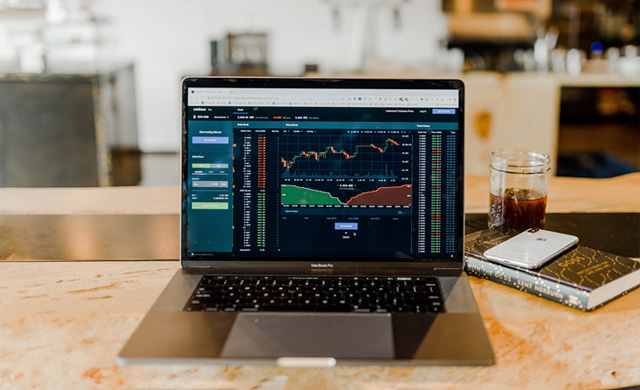If you are working in finance you need a VPN. Financial technology has, over the past few years, come out of the closet from a previously paltry 5% share of banking business and investment dollars, burgeoning to over 20% of the big money moving around. You need a virtual private network (VPN in short) for an added layer of privacy and security.

Financial workers must maintain a spotless reputation
As we shall see, financial technology users operate in a high-threat environment. The most successful are those who anticipate security threats and employ safeguards. The encryption feature of a VPN can:
- create a shield around remote customers and coworkers. The electronic financial data traveling through the VPN “tunnel” is encrypted and unbreakable.
- provide assurance that the financial company is absolutely serious about protecting the personal and financial data and ensuring compliance with regulators on the lookout for data breaches.
- generate the indispensable trust and confidence that customers must have to continue doing business and keep the financial operation afloat
Protecting Bitcoin Traders and Miners
The financial worker who deals with cryptocurrencies like Bitcoin should also employ the protection of VPN. Cryptocurrency transactions rely on blockchain security. Blockchain is a secure distributed ledger where no one can delete a transaction and relies on completely anonymous trading.
So, even though Bitcoin owners are anonymous, their blockchain Bitcoin addresses are available to the public. Hackers have been able to enter Bitcoin accounts through subterfuge and phishing. Once cryptocurrency is stolen, it cannot be recovered.
Using VPN ads an added layer of security in Bitcoin financial transactions. The VPN point-to-point secure connection avoids detection and provides a hidden moving target for cryptojackers and malware.
The threat is real and in the billions of dollars
The February 2020 FBI Internet Crime Report disclosed that internet crimes and scams “show no signs of letting up.” In fact, 2019 “saw both the highest number of complaints and…dollar losses” ever.”
The FBI stats tell the story
- Complaints received: 467,361 (an average of nearly 1,300 daily)
- $3.5 billion in losses to businesses and individual victims
- Business email compromises and scams: 23,775 complaints, $1.7 billion in losses
The FBI urges rapid reporting to its Internet Crime Complaint Center, and cites the successful recovery of more than $300 million for victims in 2019.
What a VPN does
A VPN routes your internet transactions to a server outside your local area. It masks your IP address and encrypts everything you send or receive over your connection. Its main advantage is that it protects the data at its most vulnerable stage—while in transit.
Financial companies typically handle confidential financial and personal data. Likewise, money transfers, invoices and credit card data are a vast treasure trove for hackers and cyber thieves. Banking applications typically do not come bundled with VPN technology.
As banking and financial technology applications become more distributed, they have found it more technologically feasible to partner with and rely on platform-based VPN services. So, users are strongly encouraged to access finance apps and platforms through VPN encryption.
What a VPN does not do
VPNs are not virus hunters. While VPN services have built-in security features with encryption protocols, they do not protect against viruses and malware. VPNs also cannot prevent email phishing or the user’s ill-advised clicking on links in fraudulent web sites. Users should always rely on regularly updated, commercial-grade anti-virus software.
A VPN a mobile encrypted shield hides the user’s IP address and masks the user’s location. It is another bit of insurance, but the user should also rely on anti-malware protection, a sensible password strategy, and other individual measures like file and hard disk encryption provided by the user’s operating system.
Beware of stripped-down free VPNs
Your best choice is a subscription to a premium VPN service. Free VPNs are essentially stripped-down versions of their premium counterparts, and in some cases, they are threats to the user’s privacy and security.
What comes to a subscription fee, a free VPN provider makes money and exploits its users by:
Tracking the user’s online activity
vpnMentor recently cited a study that found that the majority (over 70%) of free VPNs embedded third-party trackers into the user’s web browser. Those trackers watch where the users go and what they do. They detect the user’s online habits for targeted advertising and for sale to marketers.
Slowing down the user’s internet connection
Free VPN providers must depend on advertising to pay their expenses. their ad pop ups slow down the user’s browser performance and provide an overall distracting user experience. Also, free VPN services typically throttle bandwidth availability and push their non paying users to the back of the queue when accessing streaming services, for example.
Selling the users processing power
Free VPN providers have openly admitted making money by selling their free clients’ device processing power and bandwidth to paying customers. One provider actually facilitated an attack on its free VPN users, which compromised operating systems and networks.
Summary
The online financial industry has grown and provides a tempting target to hackers and thieves. Financial workers operate in an environment of increased threat. A VPN offers another layer of security for financial workers, who need to protect their online anonymity and security.
A VPN, however, is not a malware detector. Users should rely on commercial grade products as well as the best security practices like password security and file encryption.
Finally, beware of free VPN services, which provide a lower level of performance and security. A full-featured, premium VPN service provides the total anonymity and security not offered by free VPN services.

 Hot Features
Hot Features













